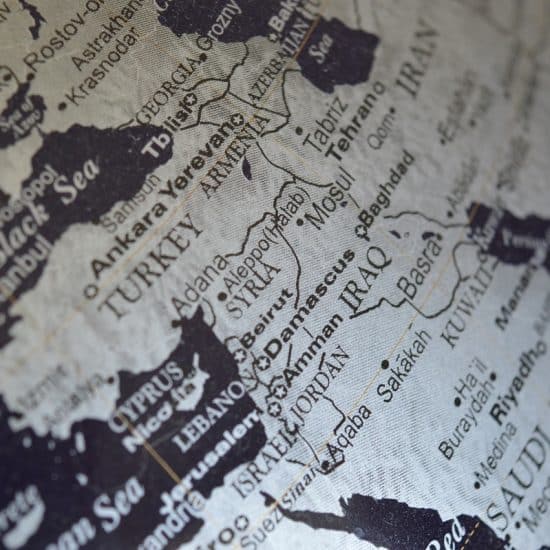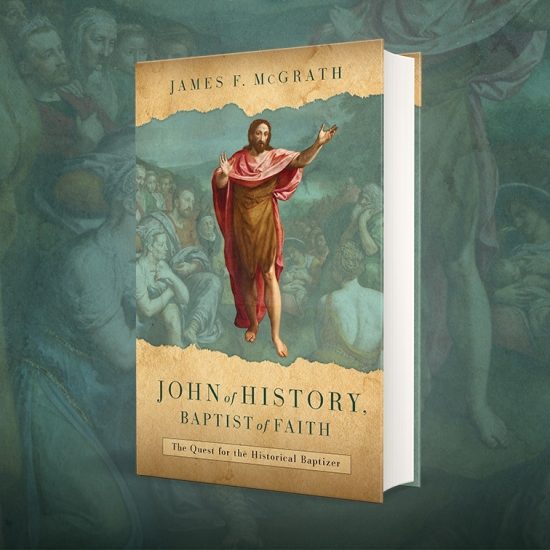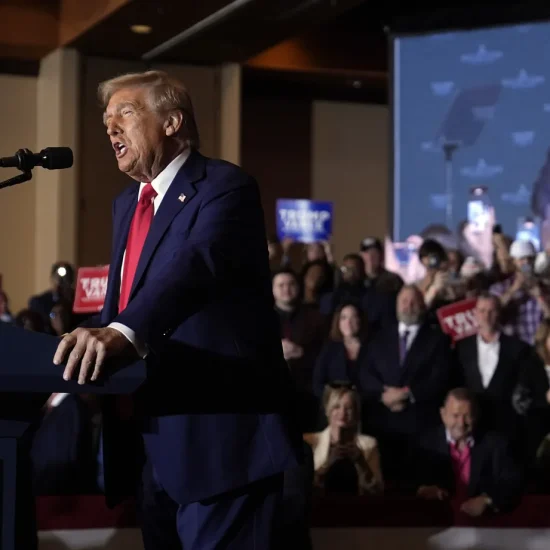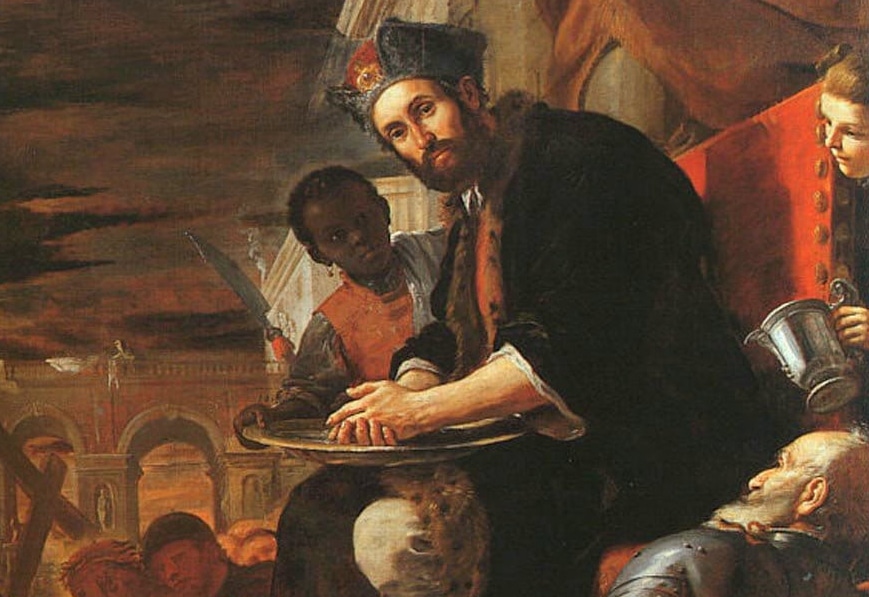
The leader stood condemned. He had acted unlawfully. He had tried to undermine the government. He had been caught. The testimony was clear, the evidence overwhelming. The only thing left was to offer punishment.

Brian Kaylor
But the politician bringing the verdict at the trial couldn’t do it. Political expediency demanded he act carefully. The facts didn’t matter as much as maintaining power.
“What is truth?” the politician overseeing the trial snorted.
The most important thing for Pontius Pilate was not the guilt or innocent of the leader of the rebellion, Barabbas. Or the guilt or innocent of the political alternative, Jesus. Pilate, like Barabbas, loved power. Could he keep his base of support strong? Could he hold onto his power without getting in trouble with the people or with his foreign benefactor?
What is truth in a push for power?
Sure, Barabbas led a violent coup effort against Pilate’s government. And, sure, Barabbas killed people. But the truth of the matter was none of that mattered as much to Pilate as power. So, he put it to a vote, but one inflamed with partisan anger that shoved the truth aside. Rather than considering the facts and doing his job to govern, he opted instead for the easy way out. No need to hear the testimony, no need to consider the facts.
Pilate baptized his hands as if that removed the guilt of his political cowardice. But he didn’t wash his mind, his heart. He didn’t wash away his wife’s warning dream.
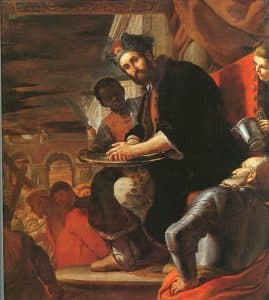
“Pilate Washing His Hands,” Mattia Preti, 1663
And it didn’t make him feel powerful. Powerful politicians like Pilate like to pretend they’re strong and in charge. But he was fearful. They’re all fearful. Because they know that things could get out of control, that people could rebel, that they could lose the one thing that matters — their precious power.
What is truth but an inconvenient matter for philosophers to waste their time debating?
Thus, Pilate looked the other way as he let the corrupt man free. Pilate knew Barabbas hadn’t learned a lesson. Pilate knew Barabbas would do it again. Pilate knew that Barabbas would continue to undermine the government and seek personal glory. But none of that mattered.
If Caesar is your king, you are Caesar’s slave. When power is your god, you must offer sacrifices.
So what if the truth had to be flogged? So what if an immoral man got away with it? The truth, Pilate believed, was no one would remember his deed. No one would long care. Everyone would look the other way, forget his darkness. He could put this unpleasant time behind him.
Or so he thought. He didn’t know it would be his defining moment, his legacy, the gospel truth about his core values. He had been on trial and convicted himself. All of his policies and all of his public service bumped from the first line of his obituary for this vote. No matter how hard he scrubbed, he couldn’t wash it away.
The truth is that Truth always wins in the end.
Brian Kaylor is editor and president of Word&Way.



